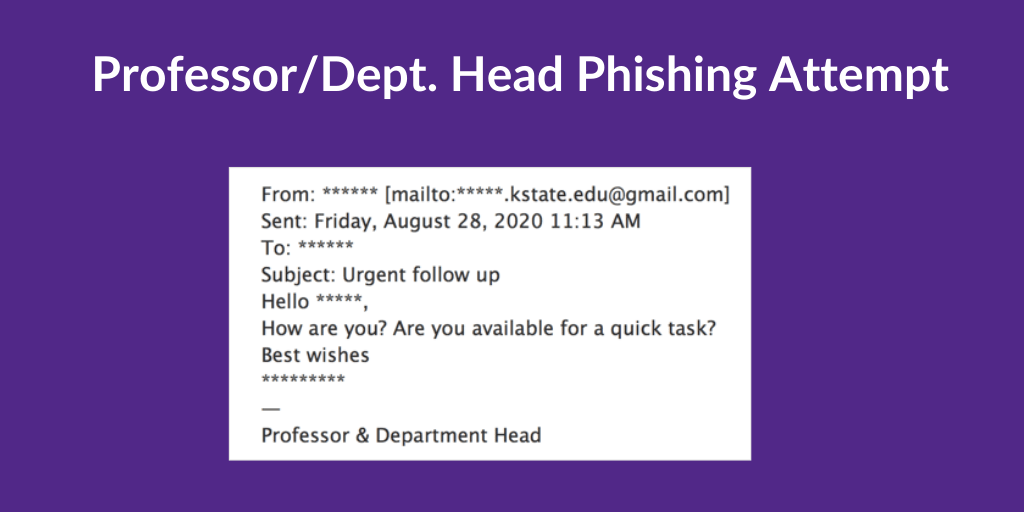Phishing attacks use email or malicious websites to infect your machine with malware and viruses in order to collect personal and financial information.
K-State sees a rise in phishing attacks during certain times of the year. The beginning of the semester is one of those times. This Professor & Department Head phishing email is a scam we are currently seeing.

Also, be cautious about anything COVID-19 related. Visit K-State’s scam blog to see recent phishing emails sent to K-Staters.
Tips to prevent becoming a victim of phishing scams:
- Don’t reply to suspicious, unexpected, or strange email.
- Be wary of email with urgent requests for your personal or financial information, or your sign-in credentials.
- Don’t open unexpected or unusual attachments, attachments from strangers, or strange-looking emails.
- Don’t click links in unexpected emails, emails you suspect are fraudulent, or if you don’t know the sender.
- Don’t click Sign In links. Go to the business website and sign in there, or contact their customer service for help.
- Avoid filling out forms in email messages that ask for financial information. Only share credit card information via secure website or telephone.
If you have any questions about phishing scams, contact the IT Help Desk (helpdesk@k-state.edu or 785-532-7722).